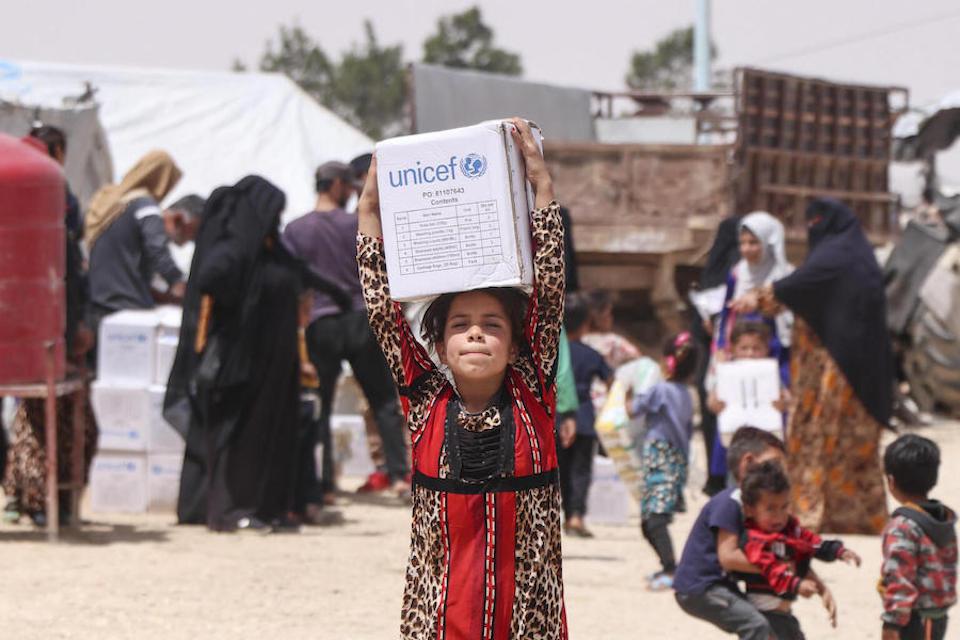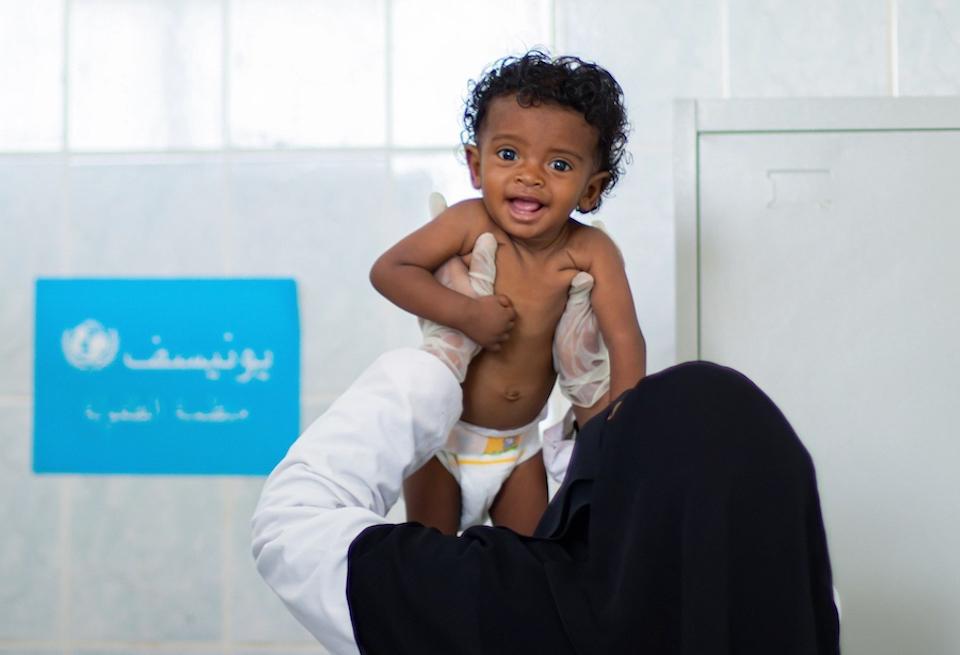UNICEF in the Middle East
UNICEF works with partners to meet humanitarian needs of children and families in Syria, Yemen and other countries across the region, while helping to strengthen systems and build community resilience to future crises.
How to help children in the Middle East
Prolonged conflicts. Extreme poverty. Earthquakes. The effects of climate change. These and other crises have displaced millions and intensified humanitarian needs for children and families all across the Middle East region.
Together with partners, UNICEF works to meet urgent needs while also advancing longer-term solutions that strengthen health and other systems and build community resilience to future crises.
UNICEF's priorities include improving access to quality health care for children and pregnant women; reaching every child with essential vaccinations; improving child nutrition; strengthening child protection from violence and abuse and ensuring access to quality education.
Explore UNICEF's work in the Middle East
UNICEF programming in the Middle East region reaches vulnerable children and families in Gaza and the West Bank, Iran, Iraq, Jordan, Kuwait, Lebanon, Oman, Qatar, Saudi Arabia, Syria, Türkiye (Turkey), United Arab Emirates and Yemen.
UNICEF in Gaza and the West Bank
UNICEF is striving to meet the urgent needs of Palestinian children and their families affected by ongoing conflict, while continuing to call for an immediate ceasefire and the release of all hostages.
Despite enormous difficulties in delivering supplies and services — including continued air strikes, fuel shortages, communications blocks and attacks on medical and humanitarian personnel and facilities — UNICEF continues to make an impact on the lives of children caught in the crisis, fighting malnutrition, shoring up health services, delivering vaccines and improving sanitation, among other emergency measures.
Learn more about the situation for children in Gaza and how to help.

UNICEF in Syria
A series of devastating earthquakes struck northwest Syria and southeast Türkiye in February 2023, creating yet another humanitarian crisis on top of existing ones stemming from over a decade of violent civil conflict, lingering effects from the COVID-19 pandemic, a failing economy and other issues.
Girls and boys in Syria need extra support to stay protected from violence, abuse and exploitation, including child labor and early marriage.
UNICEF's humanitarian action plan for Syria aims to reach 9 million people with assistance across all major program areas. Priorities include improving health care for newborns, improving vaccination rates among children, addressing spikes in severe acute malnutrition and getting out-of-school children back to learning. UNICEF also works to strengthen child protections against violence and abuse.
Learn more about UNICEF's work for children in Syria and how to help.

UNICEF in Yemen
There are over 11 million children in need of humanitarian assistance in Yemen due to years of conflict, economic shocks, food insecurity and failing social systems.
UNICEF's priorities in the country include screening and treating children for malnutrition; immunizing children against measles and other vaccine-preventable diseases; helping to contain disease outbreaks; and providing psychosocial support to children and families.
Emergency health and nutrition programs, along with water, sanitation and hygiene (WASH) and child protection interventions remain significantly underfunded.
Learn more about the crisis in Yemen and how to help.

Learn more ways to help children in the Middle East
UNICEF relies on voluntary contributions from donor governments, civil society groups, businesses and others — including individuals — to sustain critical programs and to maximize impact for children in need.
Your tax-deductible contribution can make a real difference. Every dollar counts.